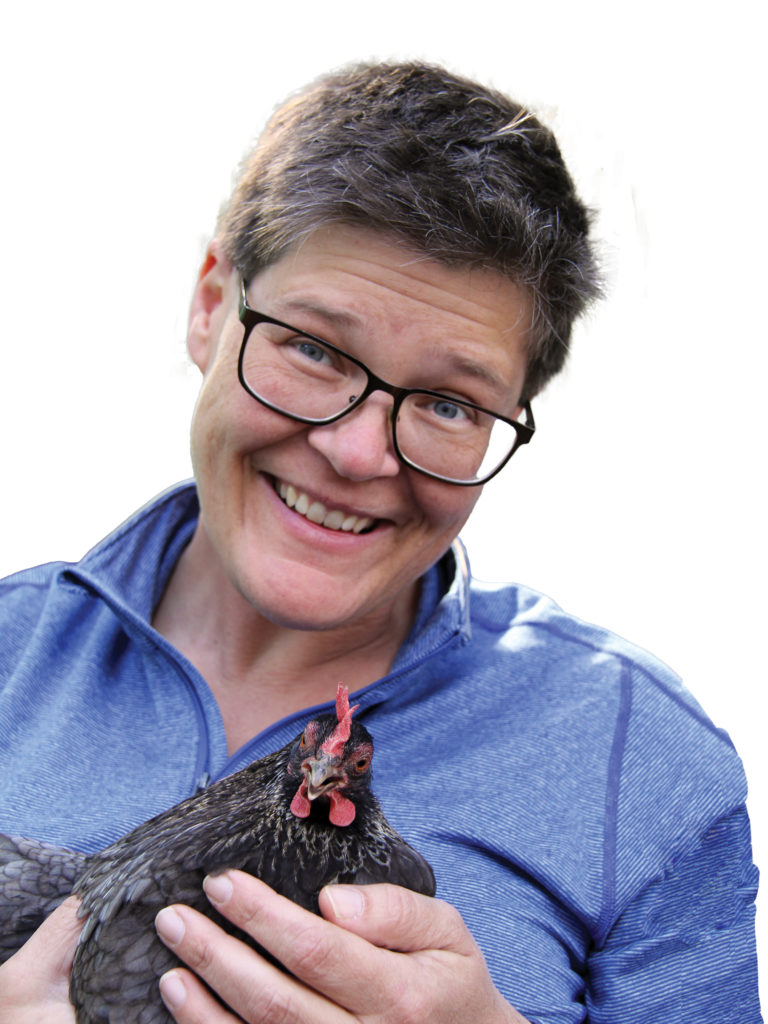If Kyes Stevens sees anyone or anything in need, she’s going to stop and help. It’s why she’s served as a volunteer firefighter for the community around her hometown of Waverly, Alabama. It’s why she rescues, and often adopts, homeless animals — more than 150 at last count. It’s also why she is an advocate for people whose voices are rarely heard.
Stevens is director of the Alabama Prison Arts + Education Project, a nationally recognized program she founded in 2003 to provide educational opportunities to people incarcerated in Alabama’s prisons. The program sprang from Stevens’ first experiences teaching poetry and creative writing classes at Talladega Federal Prison and Julia Tutwiler Prison for Women which opened her eyes to the power of — and the basic human need for — learning, creativity and self-expression.
In the years since its creation, APAEP has taught hundreds of classes in the arts, humanities and sciences to more than 5,000 incarcerated students in prisons across the state. – Katie Jackson

Photo by Barb Bondy
How did you, with a master’s degree in women’s history and a master’s of fine arts in poetry from Sarah Lawrence College in New York, end up working in Alabama’s prisons?
After I finished at Sarah Lawrence and came home, I was looking for a job. I loved teaching, but I didn’t want to teach in higher education, so when a friend told me about a National Endowment for the Arts fellowship to teach poetry, I was excited. The fact that it was to teach poetry in a Talladega Federal Prison didn’t bother me. I knew there was a long history of imprisoned writers around the world using art and poetry to communicate from inside a system that silences you. Call it naivety or whatever, but I thought, “OK, people want to write poems. Great!”
What did you first find inside the prison that made you want to help? And what have you learned through all these years?
I found this beautiful engagement with learning. My students would say “I’ve always wanted to learn how to do that” or “I’ve always wanted to know why that is.” The motivation, the root of it, is always “I have something to say.” In these 19 years, I’ve learned that there is an absolute human longing to learn and create. It’s how we express ourselves. And if you grow up without those opportunities, which many people inside prisons did, you are being told you aren’t important, and you shouldn’t invest in hope or dreams or possibilities. We need to provide those opportunities for everyone.
The APAEP works to provide learning and hope, but how does it, or any program like it, do that successfully?
Effective programming, whether in the prison or in any community education or arts program, is about creating a space where someone can say “I’m going to take this risk and be vulnerable.” It’s about taking the right or wrong out of it and offering them a chance to learn, explore and be curious.
You’ve rescued and fostered many animals, and quite a few — mostly cats but also three dogs and 35 chickens — are permanent members of your family. Tell us about them.
Many of the animals we have now are from the Island of Misfit Toys. They are rescues, adoptees and foster-fails that just needed a chance. Many, like our double front-leg amputee Roo Baby Roo, have special needs and are a ton of work, but it’s worth it because I believe we should truly value every single life, even when it’s hard and complicated to do so.
As effective as APAEP has been, what more can be done to improve lives across the state?
We need to have conversations. We need to build better systems for our state, things like education, access to broadband service and health care. We need to invest in people and help them, even if they aren’t like us. And not just people in prison but vets returning from combat, homeless people, children, anyone in need.ν




